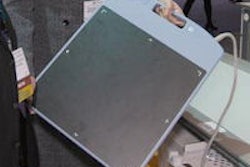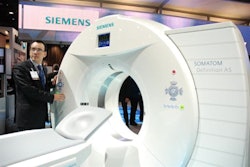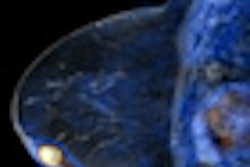Dear AuntMinnie Member,
A funny thing happened on the way to this year's Healthcare Information and Management Systems Society (HIMSS) conference -- somebody forgot to bring the imaging.
Imaging informatics is well-represented on the exhibit floor at HIMSS, of course, as PACS vendors fill up much of the exhibit space at the Orange County Convention Center. And PACS exhibitors' booths are packed with attendees eager to learn about imaging, according to associate editor Cynthia E. Keen, who is onsite covering the meeting for our Healthcare IT Digital Community.
But beyond that, you'd be hard-pressed to find much content on imaging informatics in HIMSS educational sessions. In fact, Ms. Keen has found just one session -- sponsored by the Society for Imaging Informatics in Medicine (SIIM) -- exclusively devoted to imaging. Read her first report from the conference by clicking here.
It's an unfortunate situation when you consider that medical imaging has been one of the earliest adopters of healthcare IT -- it's just that we call it RIS and PACS. And the situation is all the more galling in light of the failure of U.S. regulators to include imaging informatics in stage 2 of the "meaningful use" criteria for federal stimulus funding of healthcare IT.
But imaging will soldier on. PACS, RIS, and related imaging informatics technologies were vibrant markets before the arrival of meaningful use, and they will continue to grow once stimulus funding for healthcare IT fades.
In the meantime, learn about everything else going on at HIMSS -- including the latest business news -- by visiting our Healthcare IT Digital Community at healthcareit.auntminnie.com.
Breast screening and cancer history
In other news, a new study published today in the Journal of the American Medical Association found that mammography screening may not be as effective in women with a personal history of breast cancer.
In a study by U.S. and Australian researchers, women who previously had cancer had higher overall rates of cancer, as well as higher interval cancer rates. What's more, the accuracy of mammography screening was lower in this patient cohort versus control subjects.
The authors say their findings may indicate the need for a more tailored approach to breast screening in women with a history of cancer -- particularly given the study's finding that the highest disease rates were in women younger than 50, those with extremely dense breasts, and those with other risk factors.
Learn more by clicking here, or visit our Women's Imaging Digital Community at women.auntminnie.com.



















